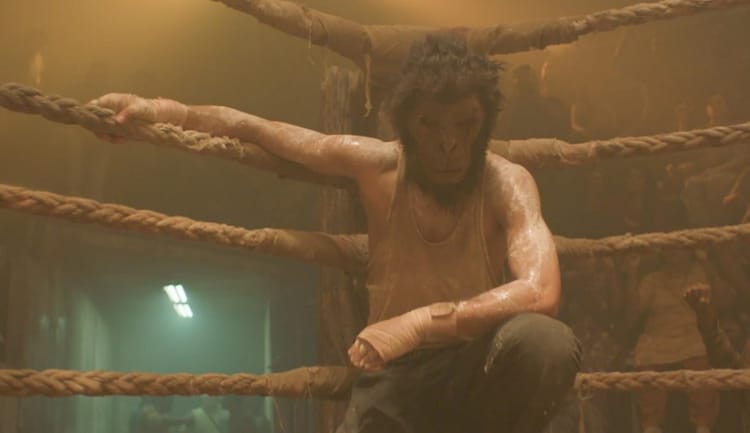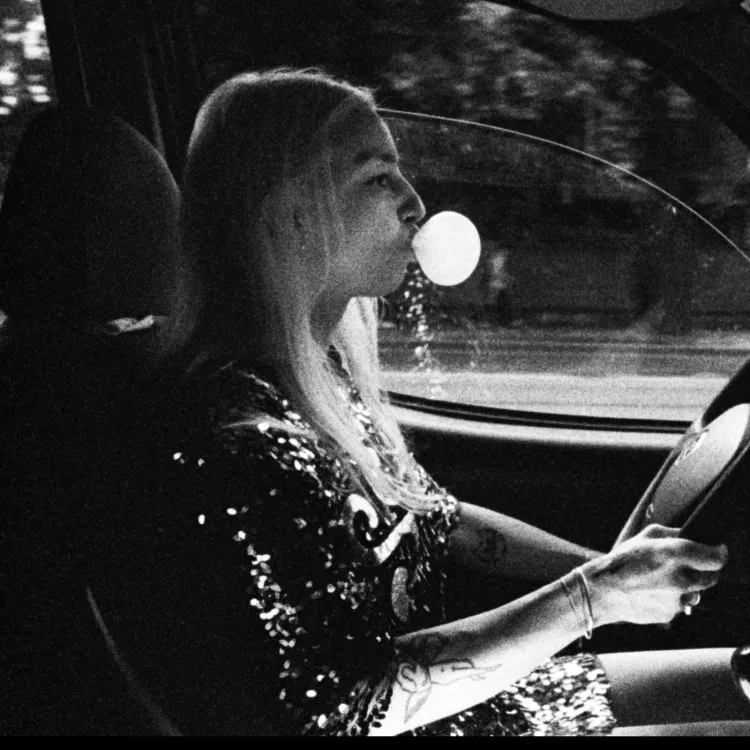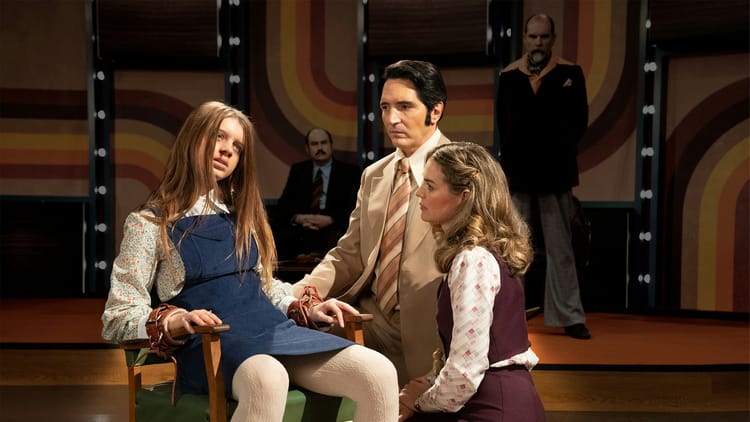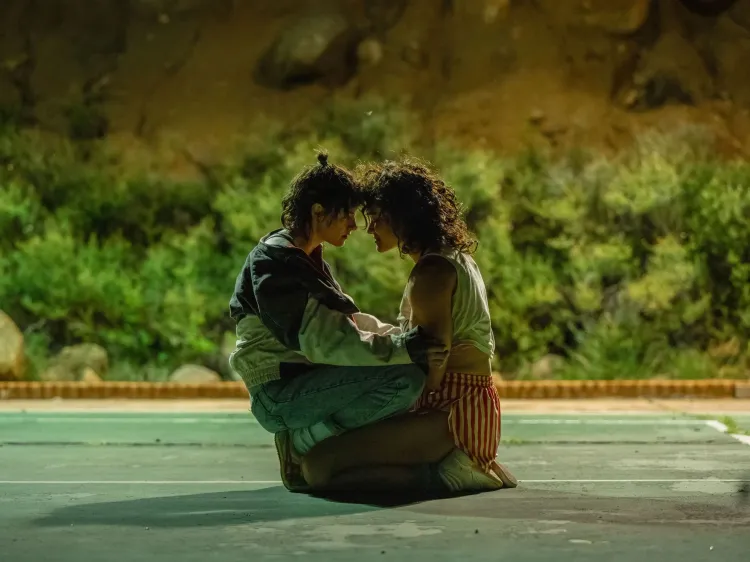Barbie
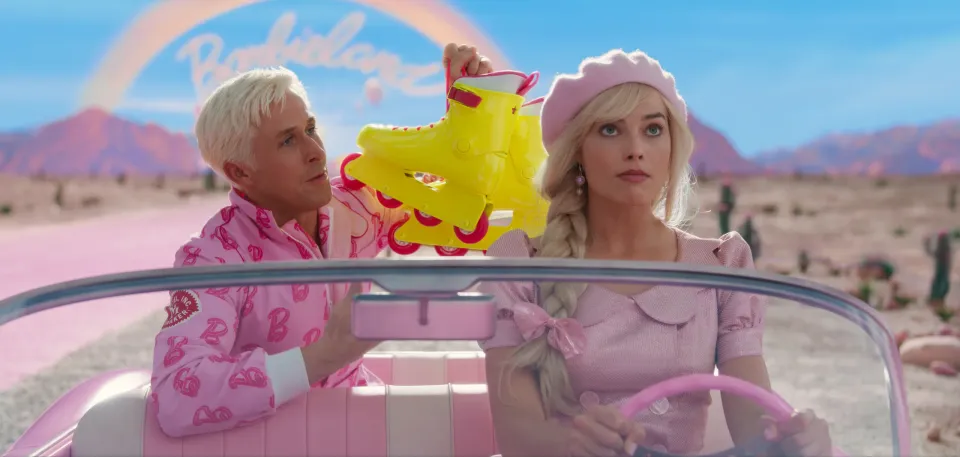
"Lady Bird" was one of my favorite films in 2017. Writer-director Greta Gerwig stitched together a heartbreaking, moving, and often very funny tapestry of 2002 Sacramento from the perspective of the titular Lady Bird, a teenager on the cusp of adulthood. One of the qualities that has stuck with me since is its specificity. There is the time of 2002, there is the place of Sacramento, and there is its characters. Every side character carries their own worlds on their shoulders; One of the film's most devastating moments is when Father Leviatch, Lady Bird's drama teacher, has his history crashing down on him. It's that specificity with all its side-characters and in particular, the frictional mother-daughter relationship of the film that makes "Lady Bird" so emotionally resonant. In "Barbie," Gerwig trades in the specificity for a broad generality, that makes for a wildly funny and entertaining movie, that doesn't have the same emotional punch.
Like its namesake toy, the film "Barbie" comes in many different shapes and sizes. There is the idealized Barbieland, glowing with its pinks, and then the real world, with its corporate suits and gym-bros. Beyond settings, there are also plenty of devices; the early moments of the film have an omniscient narrator, there's a dance sequence later on, and a fake commercial in the middle. The film's diversity makes for many great jokes, riffing on Barbie's place in society and allows for some meta-commentary. The spread of these bits are anchored by the film's massive cast, led by Margot Robbie as Barbie and Ryan Gosling as Ken. The two of them are a terrific duo, both given ample opportunity here to flex their comedic muscles. Gosling refuses to let a single bit of dialogue go to waste, with almost every one of his lines eliciting a laugh in my audience. It's frankly overdue for the actor, who displayed his excellent timing years ago in "The Nice Guys" in 2016. His smarmy performance works even better against Robbie's characterization of Barbie, sliding between optimism and sorrow. Though she starts as stereotypical Barbie, the harsh truths of the real world begin to crack her shell of plastic.
But it's also in the real world where the film starts to slip away. The Mattel Corporation's executives, led by Will Ferrell, have plenty of funny jokes but contribute little to the film's story or themes, especially at its resolution. It felt as if the film wanted to criticize Mattel more before it remembered who was paying the bills. Ken and Barbie are also only one half of the film; the other half is the fracturing mother-daughter relationship of Gloria (America Ferrera) and Sasha (Ariana Greenblatt). The characters are introduced with a beautiful montage as Barbie witnesses the milestones of their maternal bond. But the two characters are never afforded more depth than that, despite being the two human characters of the film. They speak in generalities, as pastiches of the doting mother and the rebellious teenager, feeling more stereotypical than Barbie herself. It doesn't help that the film's worst sequence, a car-chase-cum-Chevy-advertisement, centers around their generic squabbling. None of it would matter if the film was fully a comedy. But it becomes difficult because "Barbie" also wants to convey a message about feminism, a message that I couldn't really get hold of.
I am well aware of the trap I am walking myself into here. Ferrera's big monologue is about the cognitive dissonance of being a woman in modern times, where she has to be both kind and firm, soft and hard, homemaker and working woman, good daughter and better mother. It is an undeniable truth that women are forced to engage with contradictory expectations every day. And here I am, a man, lobbing another one onto the fire.
I won't wade into the pool of discourse on feminism in "Barbie." Many other people better equipped than me have written about this at length, about what the movie and product stands for, who it lets down, how it uplifts, whether it is fair to slap these expectations onto the movie at all. What I will say here is that for me the message wasn't the issue, so much as its delivery.
Based on Gerwig's past work, I expected "Barbie" to be both funny and emotional. But outside of the film's final scenes, I found myself largely listless, unaware of where I should be committing my emotional attention to. Was it Barbie and her self-actualization? Ken and his insecurities? Or Gloria and Sasha's fraught relationship? Are the stakes in Barbieland? Or are they in the real world? It eventually coalesced for me in its penultimate scene, but before that, I found myself yearning for Gerwig's prior granular focus. She mines that specificity for comedy, skewering the peculiar habits of men courting, spotlighting the specific self-care habits of women, or dropping an incredible Duolingo joke. But emotionally, the film's themes were too general for me to latch onto until its final incredible montage, which includes footage from the cast and crew themselves. Suddenly it felt like the Gerwig I had been waiting for the whole film finally showed herself. And by that point, perhaps it was too late for me to board the Barbie train.
"Barbie" is a visually delightful film, that will probably be the funniest of the year thanks to its cast's impeccable timing. It's a high-concept comedy that stutters when it shifts into its emotional beats, and shines when it embraces goofiness and celebrates earnestness. It's Gerwig's most popcorn-centric film yet, and puts her in good studio standing for her next IP venture, Netflix's adaptation of the Chronicles of Narnia. I just hope she manages to scrounge out the same emotional poignancy from her earlier work in the forests of Narnia, that I found missing in the hues of "Barbie."
